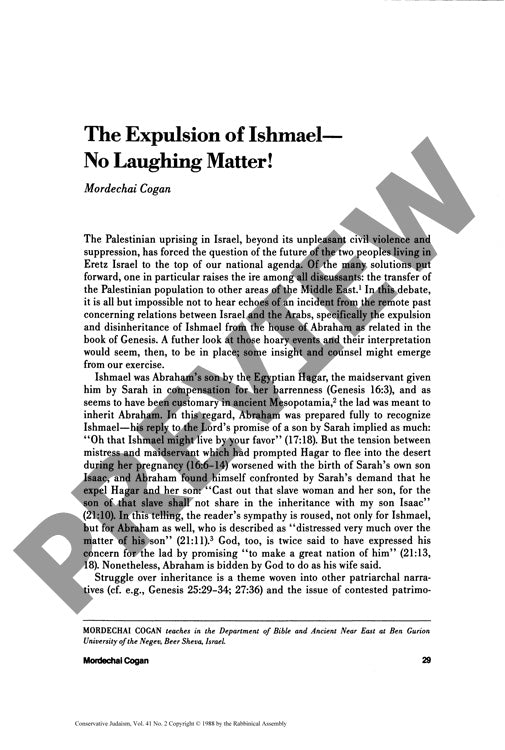No Laughing Matter
Couldn't load pickup availability
Ishmael's laughter—a seemingly minor transgression—triggered one of the Bible's most consequential expulsions, raising profound questions about moral justification for displacement that resonate in modern Israeli-Palestinian discourse. Through literary analysis of the Hebrew root צחק (laughter) and its wordplay throughout Genesis, alongside examination of rabbinic and medieval commentaries, a complex interpretive history emerges. Post-biblical scholars, troubled by the apparent disproportion between offense and punishment, transformed Ishmael's laughter into grave sins: sexual impropriety, idolatry, and attempted murder. These rabbinic reinterpretations served to establish proportionality between crime and punishment, preserving Abraham and Sarah's moral standing, while medieval commentators offered alternative explanations centered on mockery and inheritance disputes. Despite the biblical text's ambiguity regarding moral justification for Ishmael's expulsion, the rabbinic insistence that only capital offenses could warrant such severe punishment provides crucial ethical parameters for contemporary discussions of population transfer, emphasizing that expulsion demands extraordinary moral justification.

More Information
-
Physical Description
-
Publication Information
Published 1988-1989
ISBN
-
Publication Credits
Mordechai Cogan

